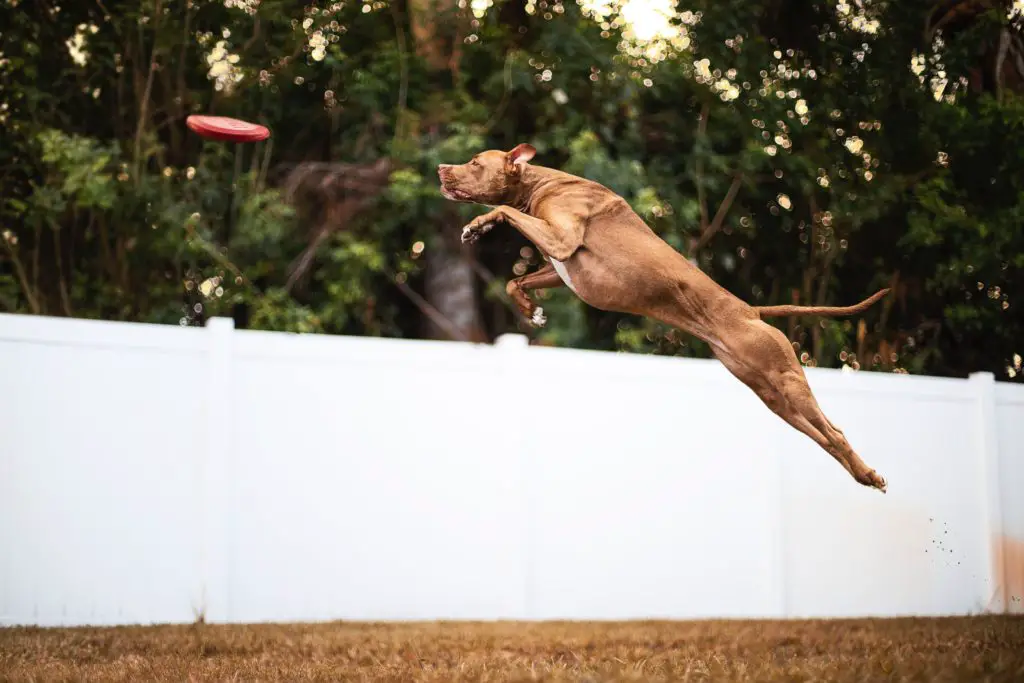Every post one reads today online seems to tell us conflicting theories on the best diet for your furry best friend. It’s hard to separate fact from fiction when it comes to raw meat-based diets, including organ meat such as liver.
Chicken liver is good for dogs, as it is one of the most nutrient-dense organ meats you can buy. Chicken livers are a protein-rich source of iron and vitamin A, B12, C and E, and selenium. However, its high vitamin A content means that you should only feed this superfood in moderation. A dog should not eat more than 10% of its total daily calorie intake in the liver on average.
Here’s some information about why chicken livers can be a great addition to your diet and why you should be careful about how much to feed your pet. Check out the list of the best chicken liver dog treats on Amazon now!
What Are the Benefits of Chicken Liver for Dogs?
The benefits of chicken liver are that it is a low-calorie superfood packed with vitamins and minerals that have multiple benefits for your dog, such as maintaining weight, improving blood, organ, bone, and joint health.
Chicken liver may also improve your dog’s eye, coat, bone, and joint health.
- Managing your pet’s weight. Liver is filling while still providing relatively low calories if prepared boiled or dehydrated can help underweight dogs and
- Improved blood health. The iron and vitamins in the liver help prevent anemia and iron deficiencies in your pet.
- Organ functioning. Chicken liver contains selenium, which helps prevent heart disease.
- Vision and kidney health. High vitamin A in the liver is a potent antioxidant and promotes healthy vision, kidney, and reproductive organ health.
- Bones and joint health. Copper and zinc in chicken liver help your pets improve and maintain hip and joint function.
What Are the Drawbacks of Chicken Liver?
The drawback of chicken liver is high amounts of vitamin A, which can cause the condition of hypervitaminosis A or vitamin A poisoning.
In this condition, an over-accumulation of vitamin A can lead to a variety of serious health issues affecting their bones and mobility.
Some symptoms of vitamin A toxicosis include the following:
- Immobility of joints, especially in the neck
- Excessive bone development
- Weakness
- Weight loss.
Is Raw Chicken Liver Good for Dogs?
Raw chicken liver is not good for dogs, as clinical studies suggest that raw meat, and particularly organ meat, can harbor bacteria. Raw food may contain pathogens that may harm your dog and your family.
The raw chicken liver also poses a greater risk of hypervitaminosis A.
The pathogens that may lurk in incorrectly stored and prepared raw meat such as chicken liver include the following:
- Salmonella SPP.
- Staphylococcus aureus.
- Escherichia coli.
- Listeria monocytogenes.
Your dog may be infected by these organisms and spread the contamination to their human companions, particularly children and those with compromised immune systems.
The cooking process also reduces the vitamin A concentrations, which reduces the chance of vitamin A toxicity.
Is Dried Chicken Liver Good for Dogs?
Chicken liver can be good for your dogs as it retains more vitamin content than cooked livers without the risks of pathogen contamination in raw livers.
However, one should take care of vitamin toxicosis as the vitamin is more concentrated in the dried liver per volume.
One should feed your dog dried livers in moderation, as the highly palatable snack contains potentially dangerous levels of fat-soluble vitamin A in high doses.
Is Cooked Chicken Liver Good for Dogs?
Cooked liver is good for dogs, as the cooking process eliminates the pathogens that may accumulate in the raw meat. Multiple pathogens in raw meat may put your dog at risk of infection, as well as you and your loved ones.
Cooking at high temperatures destroys these pathogens and makes the food safe for your pet to consume.
Which Liver Is Best for Dogs?
Beef and chicken liver are best for dogs, while lamb and pork liver still present densely packed nutrients and vitamins.
Beef liver has the best all-round nutrient profile, while the chicken liver is higher in selenium and iron. Beef liver is also lower in fat and calories.
Liver is generally the most nutrient-dense animal-based meat; they all offer health benefits and loads of vitamins and minerals.
However, the caveat is that you should feed the liver to your dog in moderation, as the same benefits can become hazards.
Most nutritionists suggest that beef and chicken liver contain the best nutritional profile.
How Much Chicken Liver Can a Dog Eat?
A dog should not eat more than 10% of its total calorie intake in the liver on average, but you should factor in the amounts of vitamin A already contained in your dog food.
You should do an analysis of their existing diet before calculating the amount of liver you can feed your particular dog.
If you are in doubt about your dog’s nutritional requirements, you should consult your veterinarian for advice. For instance, dogs with kidney conditions should avoid foods such as livers for their high phosphorous content.
Can You Feed Your Dog Chicken Liver Every Day?
You should avoid feeding your dog liver every day unless you keep the portion size to 5-10% of your dog’s daily caloric intake.
If you feed your dog liver treats, you should not feed small dogs more than two treats a week, and large breeds up to 5 small dried liver treats weekly.
It all depends on what other food you are feeding your dog and what vitamins are contained in your dog’s daily feeding schedule.
How to Cook Chicken Liver for a Dog?
To cook chicken livers for your dog, simply place livers and juices in a pan with about a cupful of water. Allow to boil and then simmer until the livers reduce in size and turn light brown.
To speed the cooking process, you may slice the livers once they become solid.
It’s truly a nightmare to slice chicken livers when raw, if not impossible. What I do is to wait until they are halfway cooked and form solid chunks and cut the liver into smaller sections.
Then I cook the livers until no pink remains.
One more trick is to cut the liver while it is still half frozen. Trust me, it will make your life much easier.
How Long Does It Take to Boil Chicken Liver for Dogs?
It takes about 10 minutes to cook a pan of chicken livers on an electric stove, while gas would take about 5-8 mins on average.
It is essential that your livers in water reach a boiling stage to destroy meat-borne pathogens, after which you can return to a simmer.
Although some online recipes suggest you cook livers in a pot half full of water, I find all the lovely juices get diluted and wasted.
I boil my livers in a medium pot with about a cup full of water so that I can use the remaining juices to coat their dry food.
However, with less water, one needs to keep stirring and watching the livers as they may stick or begin to burn more easily.
Ultimately, it’s up to you if you want to increase your water levels, but it’s a tremendous waste to lose the lovely juices. Check out the list of the best chicken liver dog treats on Amazon now!
Related Post: Are Chicken Hearts Good For Dogs?(Pros&Cons Considered)
Conclusion
Chicken livers are a nutrient-dense treat for your dogs, provided you exercise moderation and avoid overfeeding your pooch.
Raw livers may pose a health risk to your dog and your family due to pathogens, and dried livers can reach harmful vitamin concentrations.
Cooked livers are the sweet spot, but don’t overdo it, as the old saying goes, “too much of a good thing…”

My name is Katie, and I have had different pets at home for as long as I can remember. While I can definitely say I love all animals in general, my heart belongs to cats and dogs. I know you are supposed to choose one or the other, but I could never really decide. I’ve also owned hamsters and fish when I was a kid, and they filled my childhood with very delightful memories.





